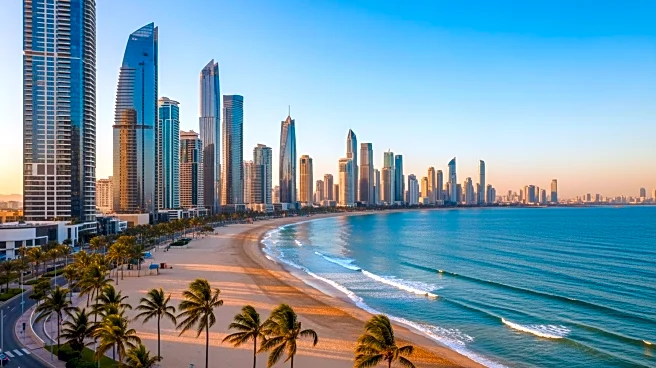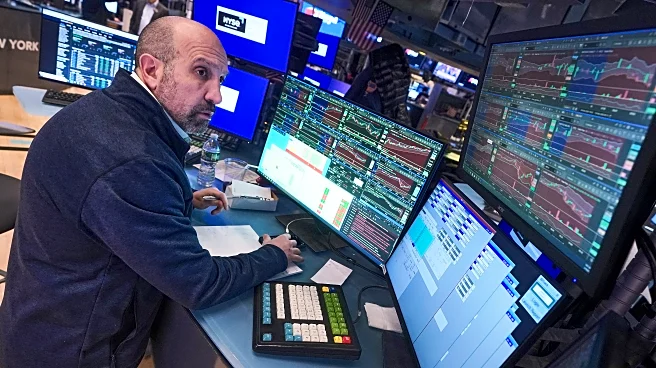What's Happening?
Arab leaders convened in Doha for an emergency summit to address the recent Israeli attack on Hamas leaders in Qatar. The summit, attended by members of the Arab League and the Organisation of Islamic Cooperation, concluded with a communique condemning Israel and expressing solidarity with Qatar. However, the statement lacked any concrete measures to pressure Israel or its principal ally, the United States, to cease military actions in Gaza. This inaction highlights a significant contrast to the 1973 Arab oil embargo, where Arab nations effectively used oil as leverage against Western economies supporting Israel. Despite the wealth and influence of countries like Qatar, Saudi Arabia, and the UAE, they appear unable or unwilling to exert similar pressure today.
Why It's Important?
The summit's outcome underscores the limited influence Arab nations currently wield in international politics, particularly concerning the Israeli-Palestinian conflict. The lack of decisive action may embolden Israel to continue its military operations in Gaza, potentially escalating the humanitarian crisis. The situation also reflects the geopolitical dynamics where Arab states, despite their economic power, remain reliant on Western nations for security and political support. This dependency limits their ability to independently influence regional conflicts, affecting their sovereignty and regional standing.
What's Next?
As Israeli forces continue operations in Gaza, the international community may witness increased calls for intervention from global powers. The Arab states' reliance on the United States to mediate could lead to diplomatic efforts to de-escalate tensions. However, without substantial pressure or incentives, significant policy shifts from Israel or its allies seem unlikely. The ongoing conflict may prompt further discussions within the Arab world about strategies to enhance their geopolitical influence.
Beyond the Headlines
The summit's lack of action raises questions about the effectiveness of regional alliances and the role of economic power in global diplomacy. It also highlights the ethical considerations of international support and intervention in conflicts, particularly when humanitarian crises are involved. The situation may prompt a reevaluation of diplomatic strategies among Arab nations to better align their economic capabilities with political influence.











